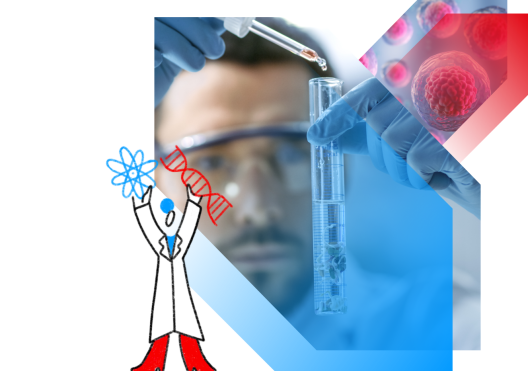With a growing number of life science research centres and a wide array of companies designing innovative, life-saving medical products, the Grand Duchy is increasingly becoming a regional centre of excellence in the field.
Luxembourg’s young and ambitious life science research community has grown at lightning speed over the past several years, thanks to both the founding of the University of Luxembourg in 2003 as well as generous public support for the sector. The University of Luxembourg is home to a sizable Department of Life Sciences and Medicine (DLSM) which focuses on biological processes in relation to human diseases with the goal of developing biomedical applications. Nearby in Belval is the Luxembourg Institute of Science and Technology (LIST), with a unit dedicated to Environmental and Industrial Biotechnologies, where biocatalysts and bioprocesses are researched for use as materials, chemicals, and energy. Other significant institutions are the Luxembourg Centre for Systems Biomedicine (LCSB), which heavily focuses on neurodegenerative diseases, and the Luxembourg Institute of Health (LIH), the country’s foremost biomedical research organisation. The sector now includes a thriving Healthtech industry that has grown from a handful of companies ten years ago to more than 131 today.
Healthtech
The bulk of the Healthtech sector in Luxembourg is the production of medical and diagnostic devices (44 percent), with bio-pharma accounting for 29 percent and 27 percent comprising other services. This sector is young and growing rapidly. Half of today’s Healthtech companies were incorporated in the last ten years, and many of these are smaller start-ups, with nearly 80 percent employing fewer than 10 people. Much of the burst in activity can be attributed to the country’s generous investments in biomedical research over the last decade, the attractive business climate, centralised location in Western Europe, and dedicated facilities for new Healthtech businesses. Among the fascinating start-ups are LiveMetric, which produces a wearable, non-invasive medical device that enables AI-augmented care, condition management, and treatment; SOVI Solutions, whose main product is Talkii, a digital companion for people with communication disorders; and ExoAtlet, which produces wearable exoskeletons for people with mobility issues.
Digital health
Luxembourg, which ranked second in the world on the Digital Readiness Index 2019, is making a large-scale effort to apply its digital prowess to become a digital health hub. Paulette Lenert, the country’s health minister, wants to further unite healthcare with digital technologies to prepare for future health issues exacerbated by ever-rising life expectancies, while at the same time keeping an eye on budgets. Some of the innovations will likely include mHealth apps, tele-triage, and online tools to connect patients with doctors. Behind the scenes, hospitals are taking advantage of Luxembourg’s superb IT infrastructure to develop electronic health records, a secure exchange of health data, and platforms for direct communication between doctors, healthcare staff, and patients. Other innovations include using blockchain technologies for billing and insurance and the implementation of electronic health cards.
Neurodegenerative diseases
Neurodegenerative diseases such as Parkinson’s are some of the most difficult diseases to treat and cure, as they are riddled by complexity. The Grand Duchy is playing an important role in better understanding such diseases, particularly Parkinson’s, at the Luxembourg Centre for Systems Biomedicine (LCSB). The centre accelerates medical research by bridging the links between systems biology and medical research, and it fosters collaboration between biologists, doctors, computer scientists, physicists, engineers, and mathematicians. The insights they provide play a key role in understanding neurodegenerative diseases, and they’re vital to developing new diagnostic tools and therapy programs. The centre employs hundreds of investigators, permanent and visiting researchers, staff, and PhD students. In 2019, researchers from the centre were part of a team that managed to rejuvenate stem cells in aging mice, which represented a huge breakthrough and offers hope for better treatment and cures.
Molecular diagnostics
Molecular diagnostics involves analysing an individual's genetic code and examining how cells express their genes as proteins, and it can be used to diagnose diseases, detect risk factors, and tailor therapies for individual patients. Luxembourg is researching the efficacy and economic viability of this technology in a programme called MDLUX2. Like its predecessor MDLUX1, it aims to explore the role molecular diagnostics might play in cancer research, treatment, and care. Such tests are currently not covered by public health insurance, so MDLUX2 can play a key role in, hopefully, establishing their usage. Belgium-based OncoDNA, which develops precision medicine in oncology, was selected as the provider of molecular diagnostic testing in Luxembourg, and dozens of local cancer patients stand to benefit from clinical trials.
Oncology
The Grand Duchy’s biomedical research organisation, the Luxembourg Institute of Health (LIH), is home to a highly respected oncology department that conducts world-class research targeting the most common types of cancer. Using cutting-edge imaging modalities, the research focuses on cellular and molecular mechanisms of tumour progression. Research units include the NORLUX Neuro-Oncology Laboratory, DNA Repair and Chemoresistance, Laboratory of Oncolytic-Virus-Immuno-Therapeutics, Tumour Immunotherapy and Macroenvironment, and many others. LIH is also home to CANBIO, a doctoral research and training program investigating tumour progression and recurrence. PhD candidates gain valuable insight into various aspects of highly malignant cancers including tumour escape mechanisms, disease monitoring, and large-scale data analysis.
Stay informed! Sign up to receive our latest updates.
Planning your event in the Grand Duchy? We'd love to help.






